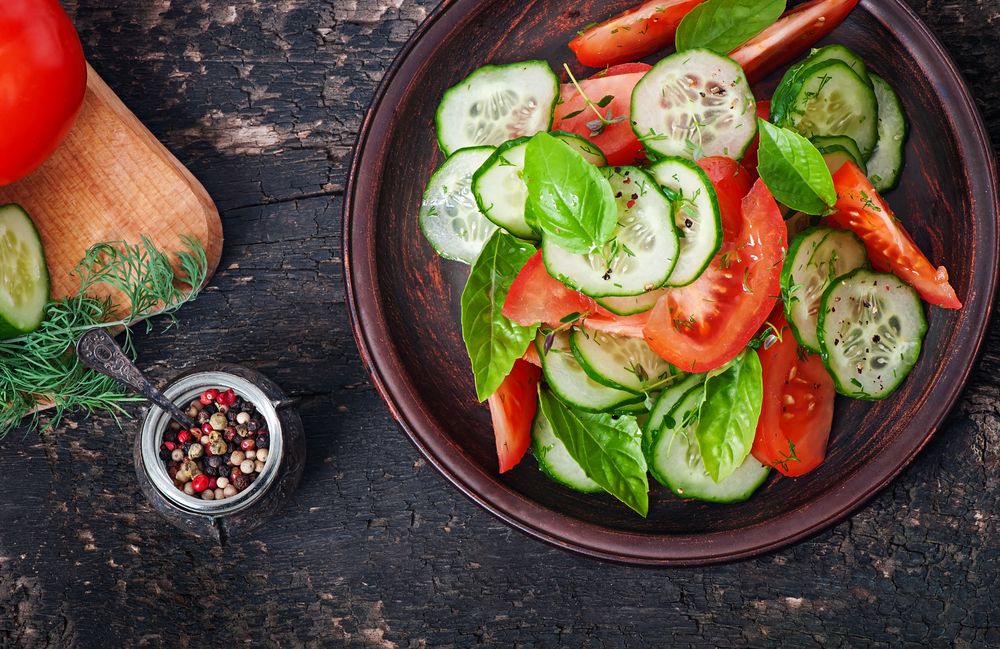Protein is a vital nutrient, one of the three primary macronutrients (alongside carbohydrates and fats) your body requires. It plays a key role in boosting immune function, building and maintaining muscle mass, increasing satiety, and supporting healthy weight management. In the pursuit of a protein-rich diet, it's important to identify foods that are high in protein yet low in calories to maintain balanced energy intake. To help you stay on track with your weight loss goals, we consulted with registered dietitians and compiled their recommendations for the best high-protein, low-calorie foods.
Whether your goal is weight loss, muscle building, or simply adopting a healthier lifestyle, knowing the nutritional value of your daily food intake is essential for achieving your health and fitness objectives. Our comprehensive list includes a variety of healthful, protein-rich foods, encompassing lean meats, plant-based alternatives, snacks, and other key meal components. This variety ensures you have access to a range of options that provide substantial protein without excessive calories, perfect for enhancing your weight loss diet.
1) Skinless Chicken Thighs
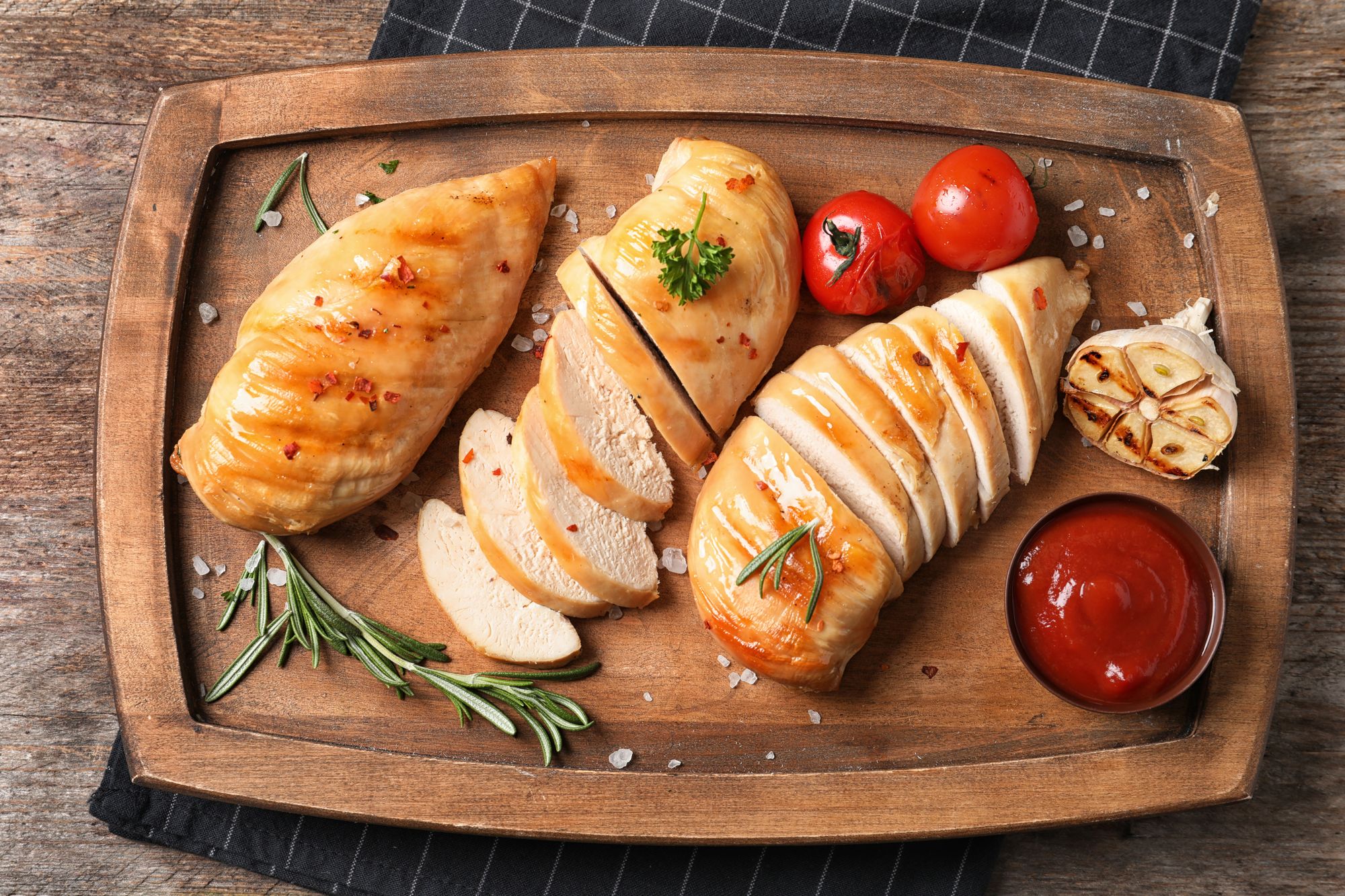
Portion: 4 ounces (112 grams) Calories: 140 Protein: 16 grams
Skinless chicken thighs are a type of dark meat known for their high protein content. Studies indicate that dark meat, like that found in chicken thighs, has a higher iron content compared to white meat. Iron is a crucial nutrient that aids in energy production and the formation of red blood cells.
2) Egg Whites
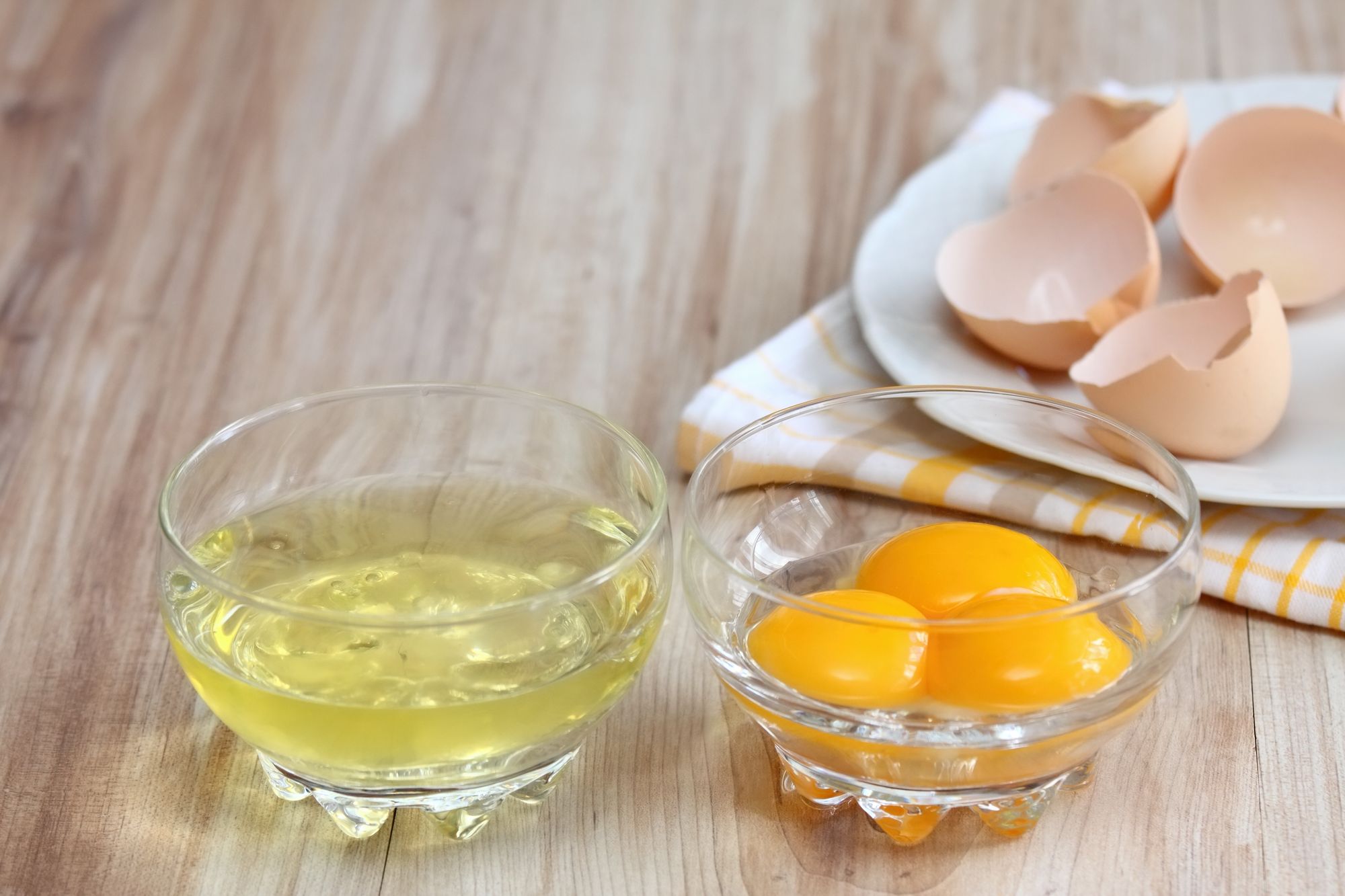
Portion: 100 grams Calories: 52 Protein: 11 grams
Egg whites stand out as a food high in protein but low in calories, ideal for individuals concentrating on weight management. They are abundant in branched-chain amino acids (BCAAs), essential for the repair and growth of muscles.
3) Tempeh
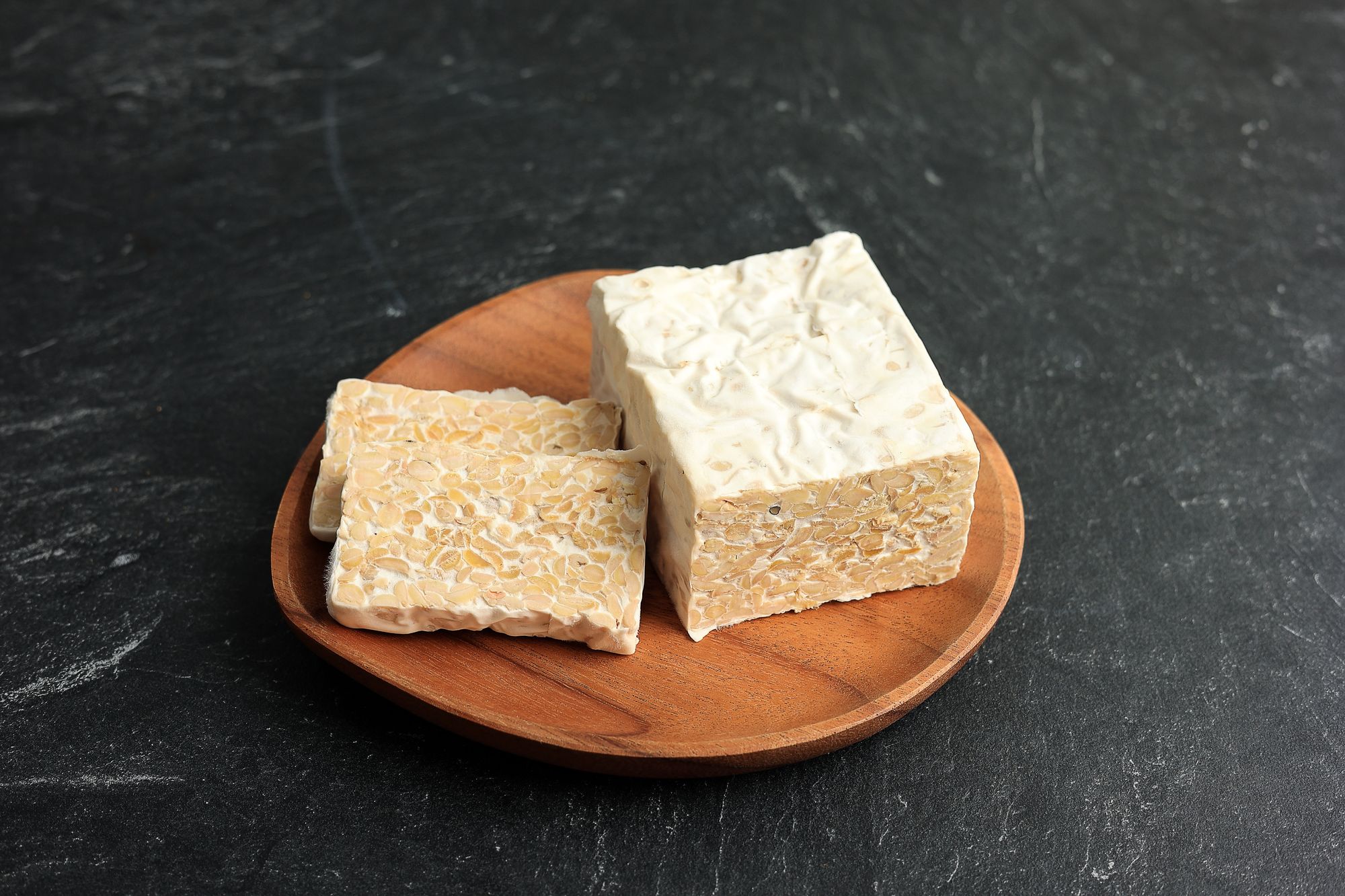
Portion: 100 grams Calories: 192 Protein: 20 grams
Tempeh, made from fermented soybeans, stands as a formidable plant-based protein source. It features a distinctively nutty taste and a firm texture. Additionally, this soy-derived protein is enriched with Para probiotics, which are believed to potentially boost athletic performance.
4) Tofu
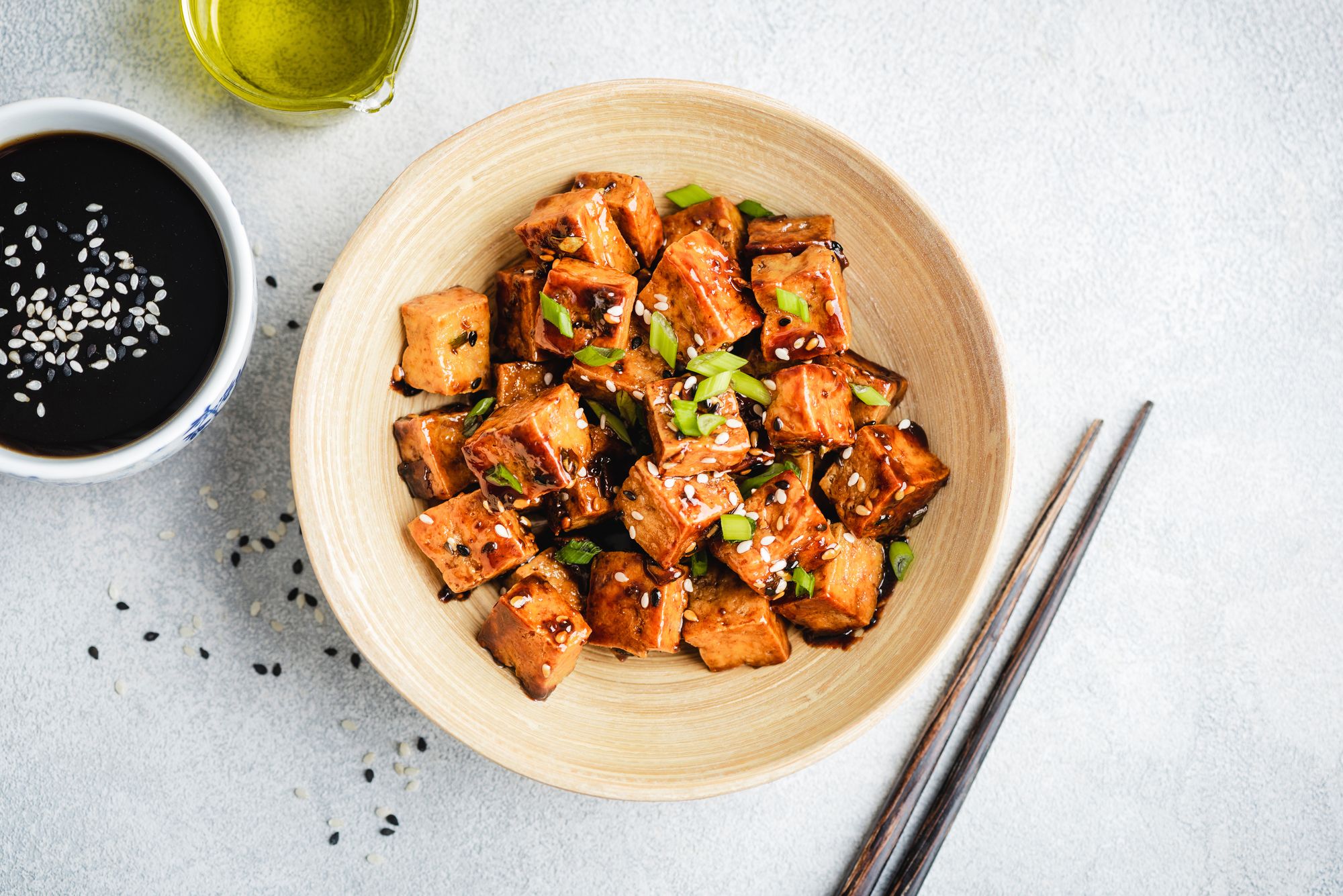
Portion: 100 grams Calories: 144 Protein: 17 grams
Soy products like tofu are excellent for offering protein without cholesterol, along with nutrients such as fiber, calcium, and iron, as noted by nutrition experts. Tofu is abundant in essential amino acids, qualifying it as a complete protein source for vegetarians and vegans. Additionally, its neutral flavor makes it adept at absorbing the tastes of other components, rendering it a versatile ingredient for both savory and sweet recipes.
5) Cod
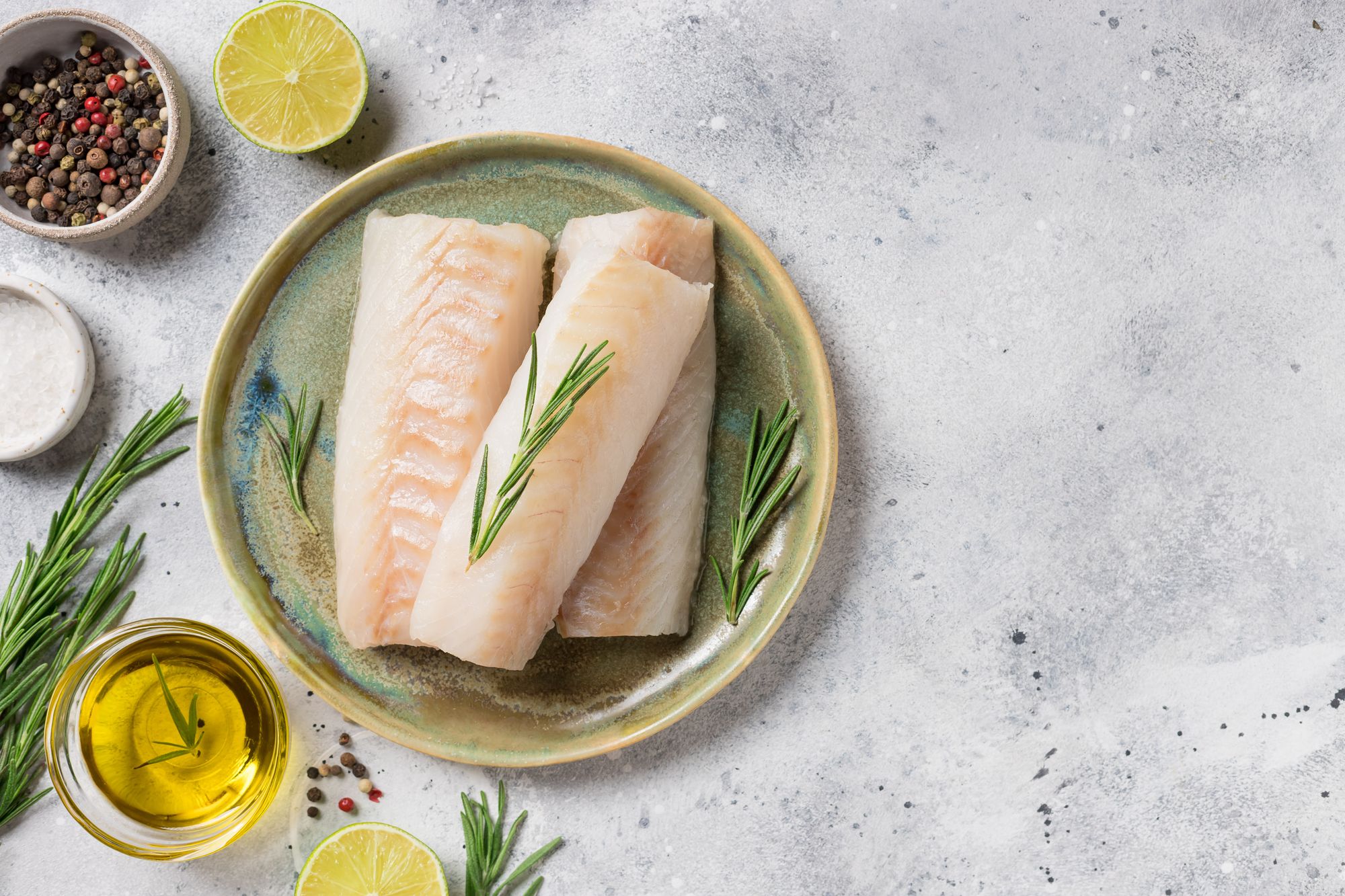
Portion: 3 ounces (85 grams) Calories: 70 Protein: 15 grams
Cod is a nutrient-rich fish, providing not just protein but also phosphorus, which is essential for bone health, and vitamin B12, important for nerve function and the production of red blood cells.
6) Salmon
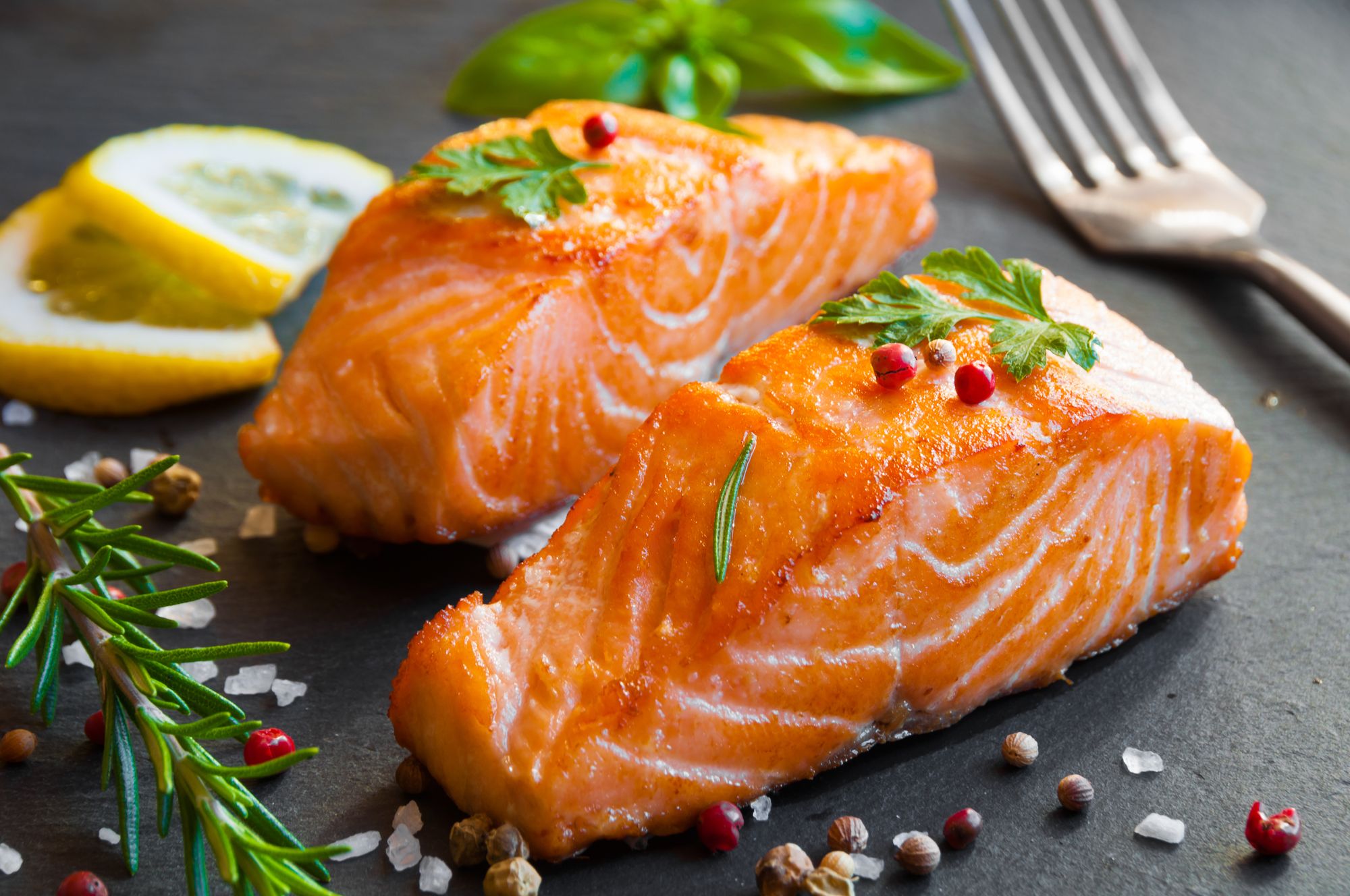
Portion: 3 ounces (85 grams) Calories: 177 Protein: 17 grams
Salmon is rich in both protein and omega-3 fatty acids, making it beneficial for heart health, reducing inflammation, and enhancing brain function. Additionally, it is a valuable source of vitamin D, selenium, and B vitamins, contributing significantly to your overall nutrient consumption.
7) Beans
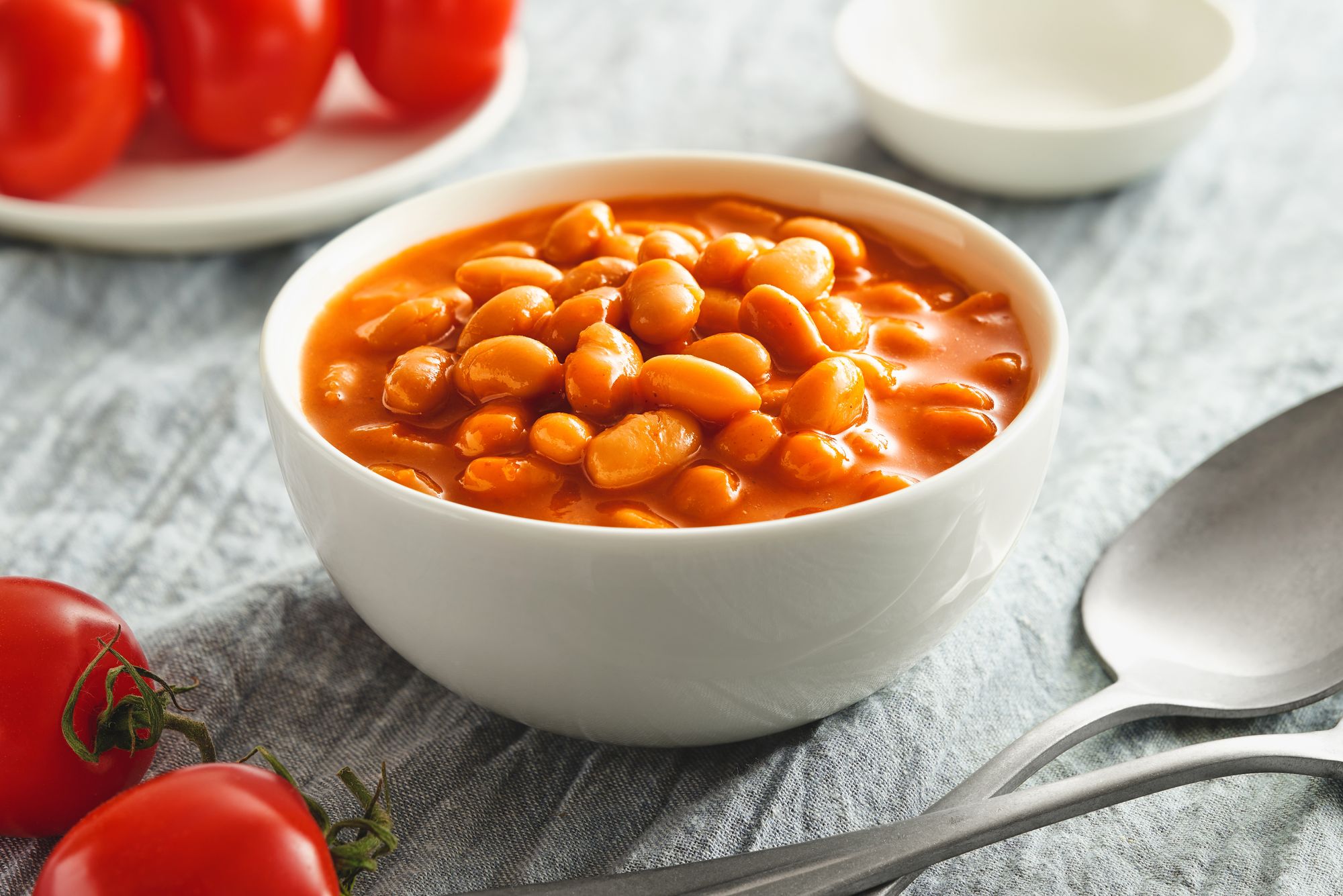
Portion: 100 grams Calories: 347 Protein: 21 grams
Beans are an excellent choice for enhancing the nutritional value and texture of various dishes like salads, sandwiches, and stir-fries. They are a plant-based protein powerhouse, enriched with potassium for heart health, magnesium for muscle function, and iron for energy production.
As highlighted by nutrition experts, beans, whether canned or dry, are a superb plant-based, high-protein addition to a variety of meals. Besides their protein content, beans are also valued for their rich potassium content, beneficial for heart health, as well as being sources of magnesium, iron, and other nutrients.
8) Eggs
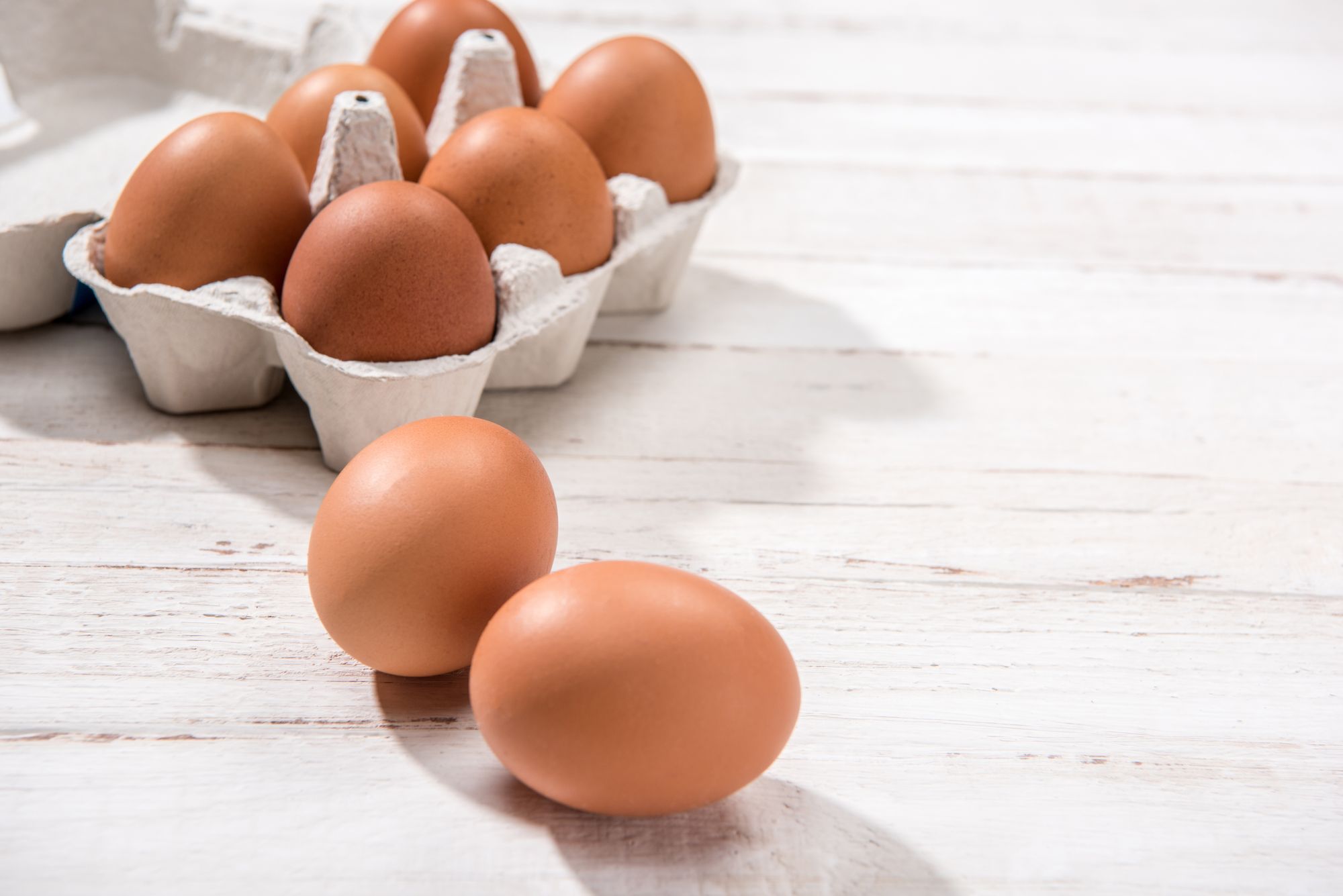
Portion: 1 extra-large egg Calories: 80 Protein: 7 grams
Eggs are a rich source of essential amino acids, vitamins, and minerals. Research has shown that they aid in muscle repair, enhance metabolism, and prolong satiety. Egg yolks are particularly nutritious, containing healthy fats and vital nutrients like choline, important for brain health.
As nutritional experts like Schlichter point out, eggs are packed with crucial micronutrients, including B vitamins, iron, and choline. A balanced, low-calorie breakfast idea could be a combination of eggs and vegetables served with half an English muffin or a slice of toast.
9) Jerky
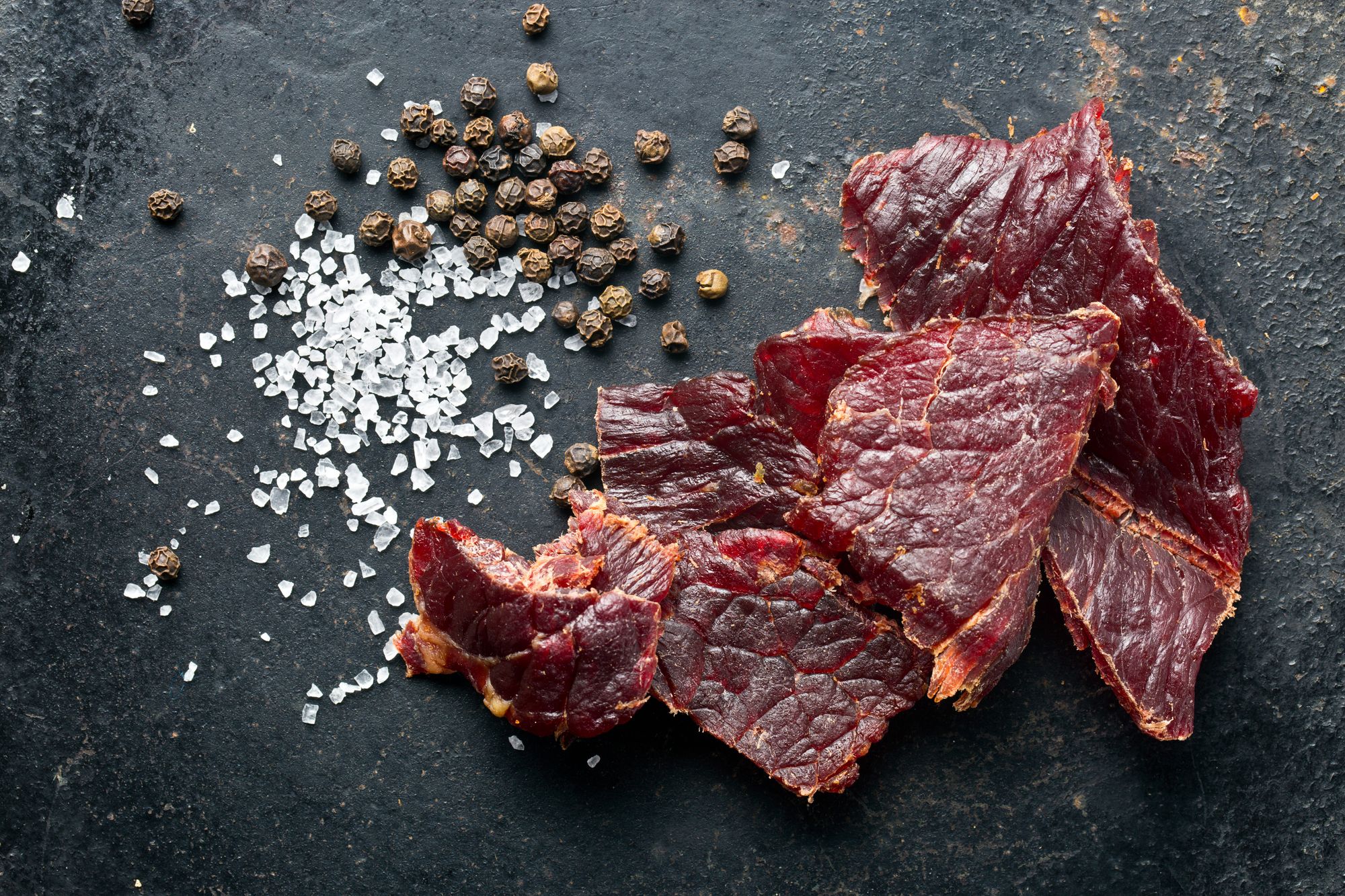
Portion: 1 serving (28 grams) Calories: 80 Protein: 10 grams
Jerky, often crafted from lean meats such as beef or turkey, offers a convenient and low-calorie protein choice. Nutrition experts like Schlichter highlight that jerky is a practical, shelf-stable protein option, suitable for snacking or as an addition to lunch. It's also a source of lean protein and micronutrients like iron and zinc. However, it's important to be aware of the sodium content and choose varieties with few additives.
10) Cauliflower
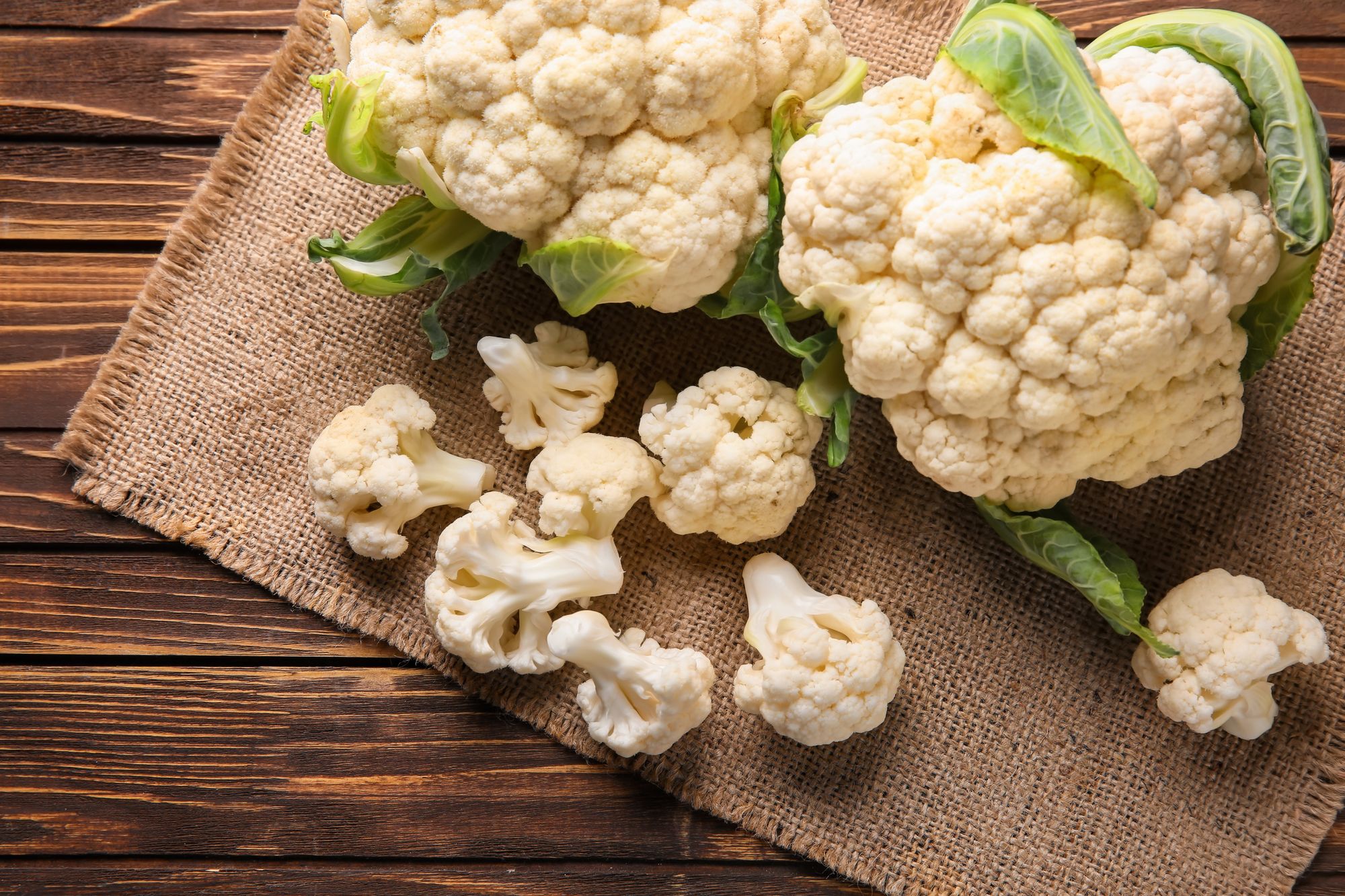
Portion: 100 grams Calories: 25 Protein: 2 grams
Cauliflower, although not typically recognized for its protein content, is a noteworthy inclusion in the high-protein, low-calorie foods group. This cruciferous vegetable offers a modest protein level, complemented by a variety of other nutrients. Its versatility is a key feature, allowing it to be prepared in diverse ways such as roasting, mashing, or even being transformed into a low-calorie pizza crust. These culinary options provide creative methods to boost protein intake while managing calorie consumption.
11) Mushrooms
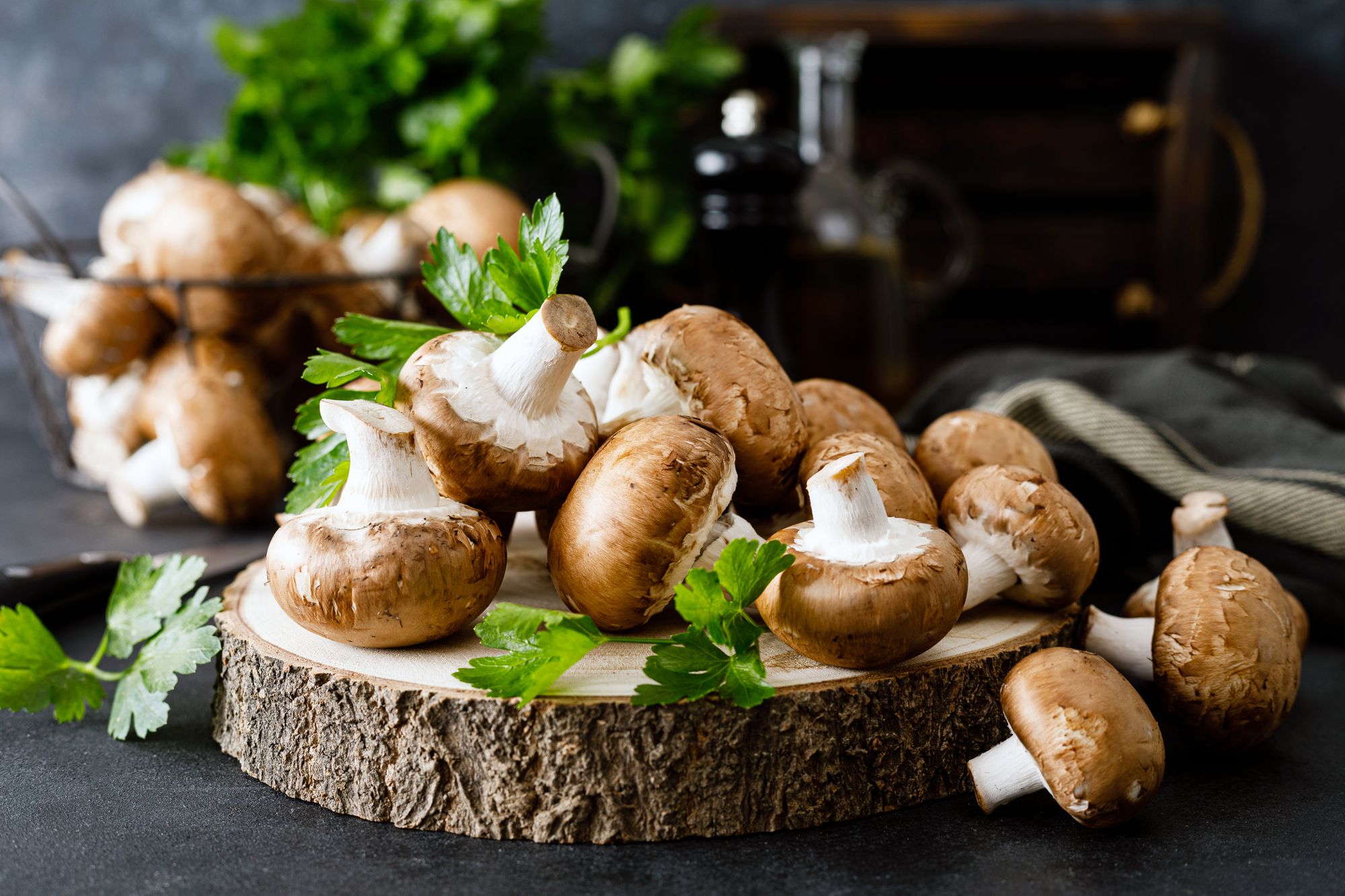
Portion: 100 grams Calories: 22 Protein: 3 grams
Mushrooms are an often-overlooked source of protein, providing a distinctive texture and flavor to a variety of dishes. Whether they're sautéed as a side dish, incorporated into omelets, or used as a meat alternative in specific recipes, mushrooms contribute a modest but valuable amount of protein along with essential vitamins and minerals, all while helping to maintain a low-calorie intake.
12) Chicken Breast
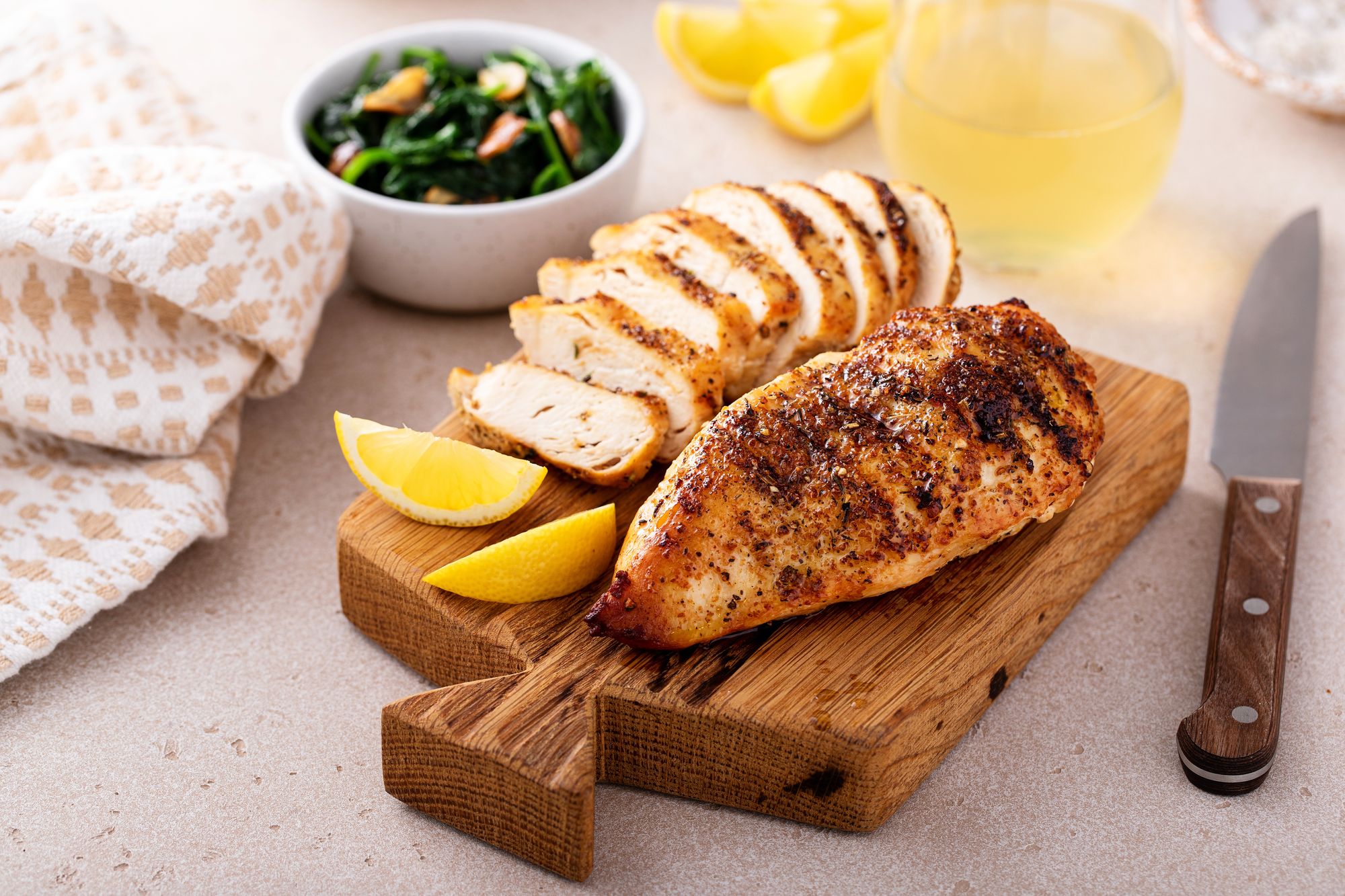
Portion: 4 ounces (112 grams) Calories: 120 Protein: 26 grams
Rich in lean protein, chicken breast is highly recommended by nutrition experts like Kelsey Kunik, RDN, from Graciously Nourished, as one of the top high-protein, low-calorie food choices. Versatile in preparation methods such as grilling, baking, or sautéing, chicken breast serves as a protein-packed base for meals without significantly increasing calorie content.
13) Non-Fat Greek Yogurt
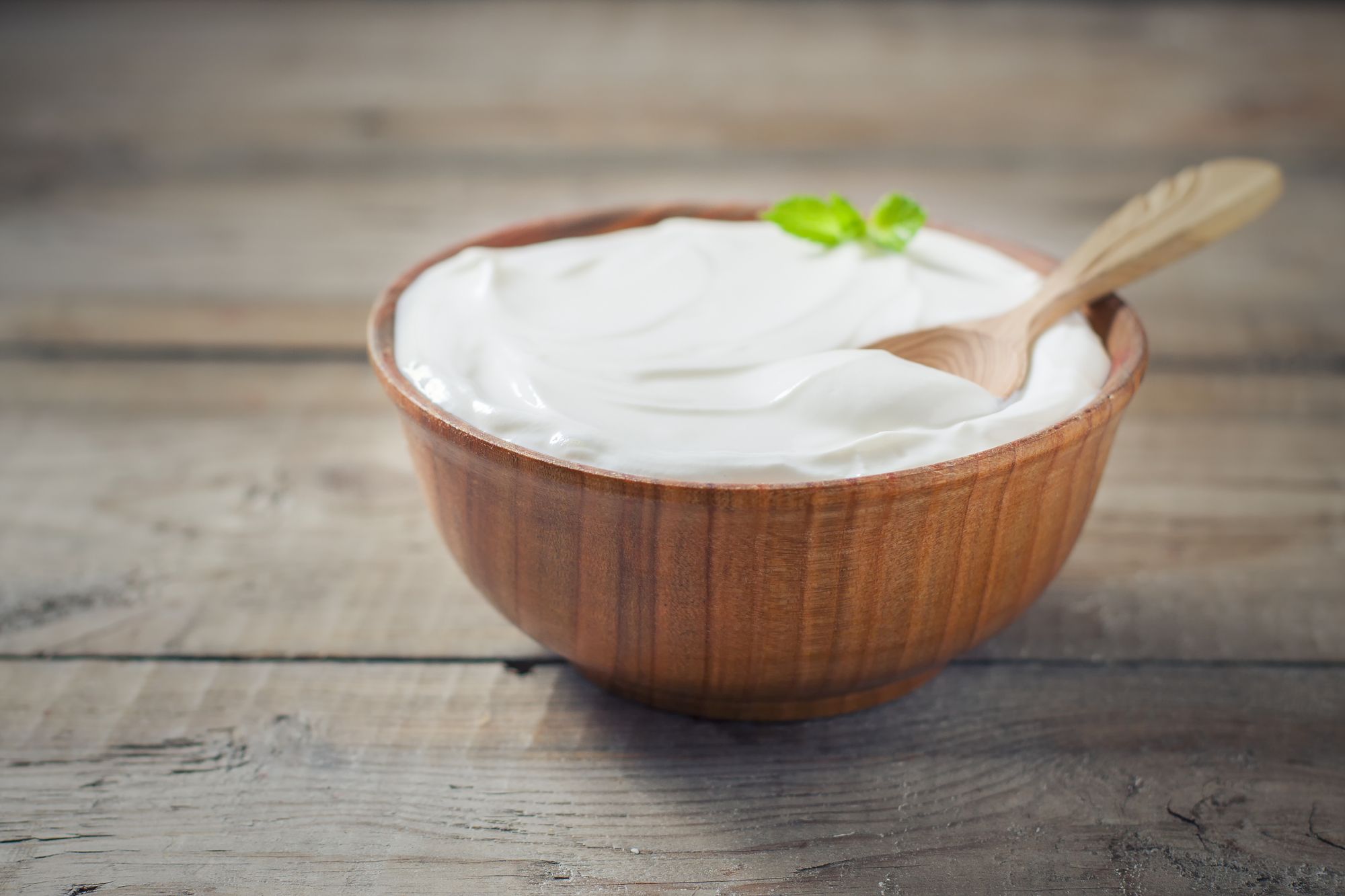
Portion: 100 grams Calories: 60 Protein: 10 grams
Low-fat Greek yogurt, known for its rich and creamy texture, is a versatile breakfast choice that complements fruits and granola or stands well on its own. As Sarah Schlichter, MPH, RDN, from Bucket List Tummy, explains to Eat This, Not That! low-fat Greek yogurt provides as much protein as its higher-fat counterparts, but with reduced fat content. It contains significantly more protein than traditional yogurt and is packed with beneficial probiotics for gut health. Greek yogurt can be used as a smoothie base, mixed into yogurt bowls, oatmeal, dips, and more, making it a valuable addition to various meals.
14) Tuna
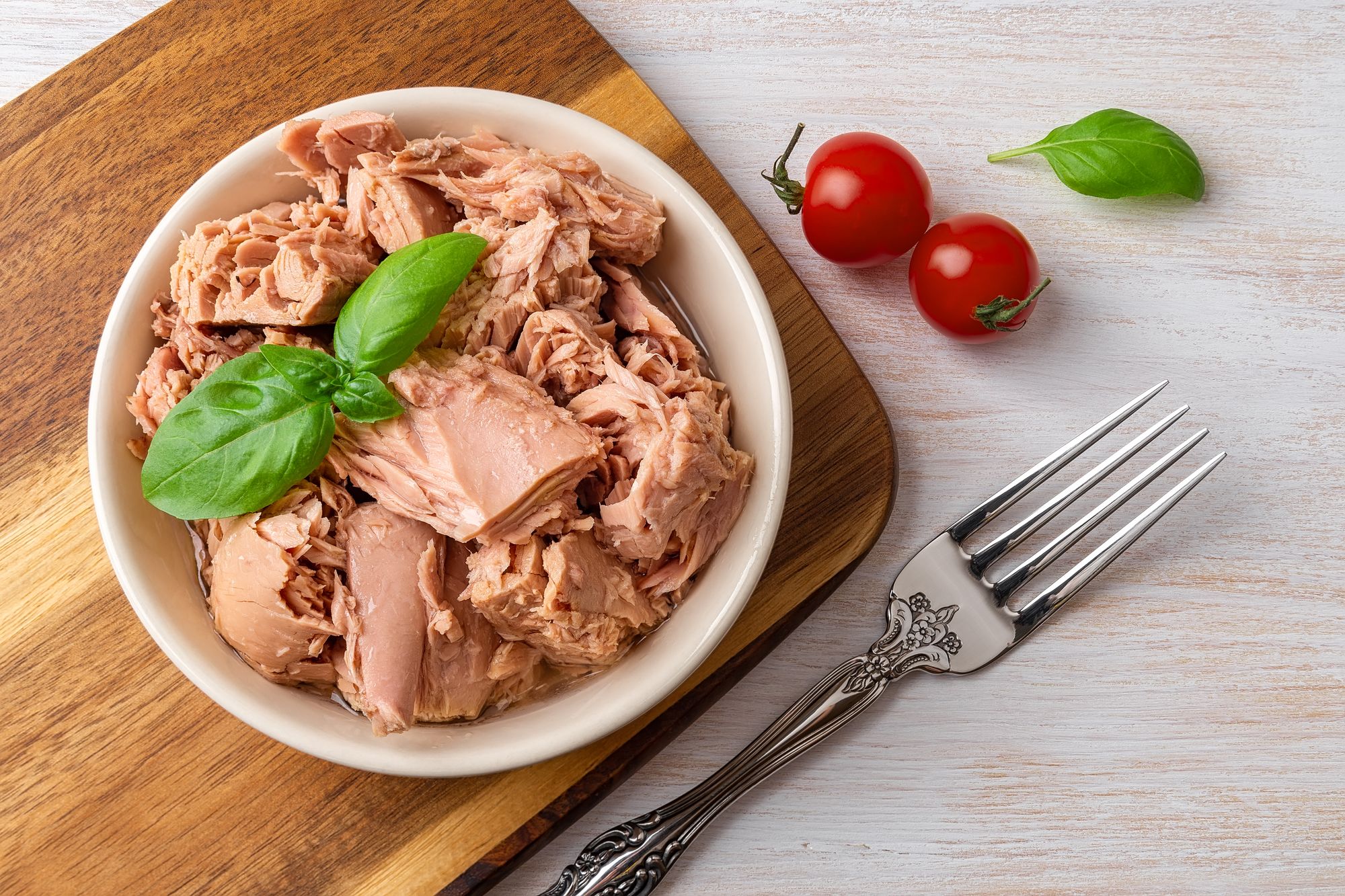
Portion: 3 ounces (85 grams) Calories: 122 Protein: 20 grams
Tuna, whether in canned form or fresh, is a protein-rich and adaptable seafood that fits well in dishes like salads and sandwiches, making it a suitable option for those in search of nutrient-packed foods. As Kelsey Kunik points out, "Canned tuna is an economical high-protein option that's also low in calories. It offers an easy and convenient method to incorporate protein and omega-3 fatty acids into your diet."
15) Edamame
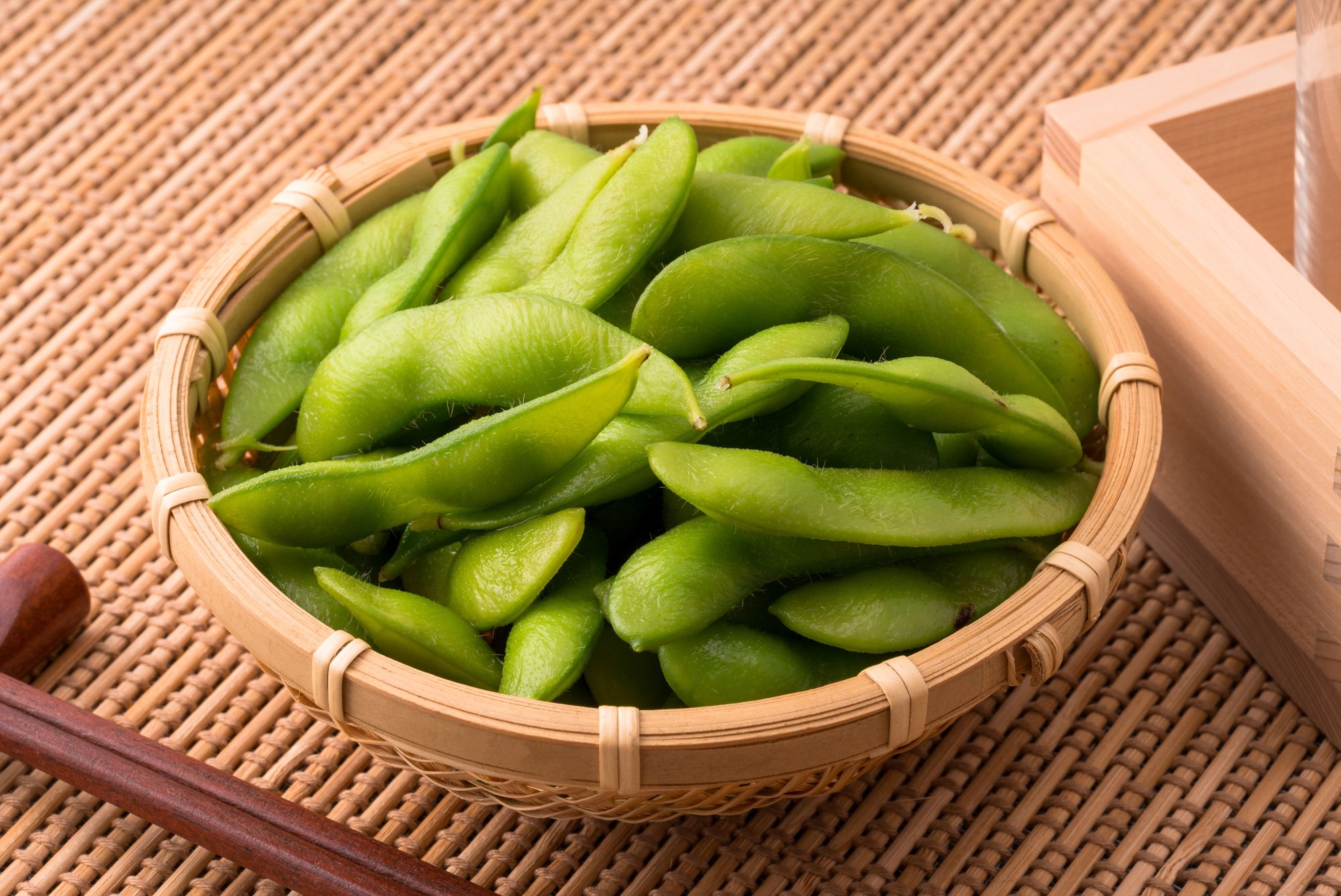
Portion: 100 grams Calories: 140 Protein: 12 grams
Edamame beans, a plant-based choice, are not only low in calories but also an excellent source of vital nutrients such as vitamin K, antioxidants, and fiber. They can be used as a protein addition in bowls or salads, or simply enjoyed as a snack. Kelsey Kunik suggests, "Maintain a bag of shelled edamame in your freezer for easy addition to pasta, salads, or stir-fries."
16) Low-Fat Cottage Cheese
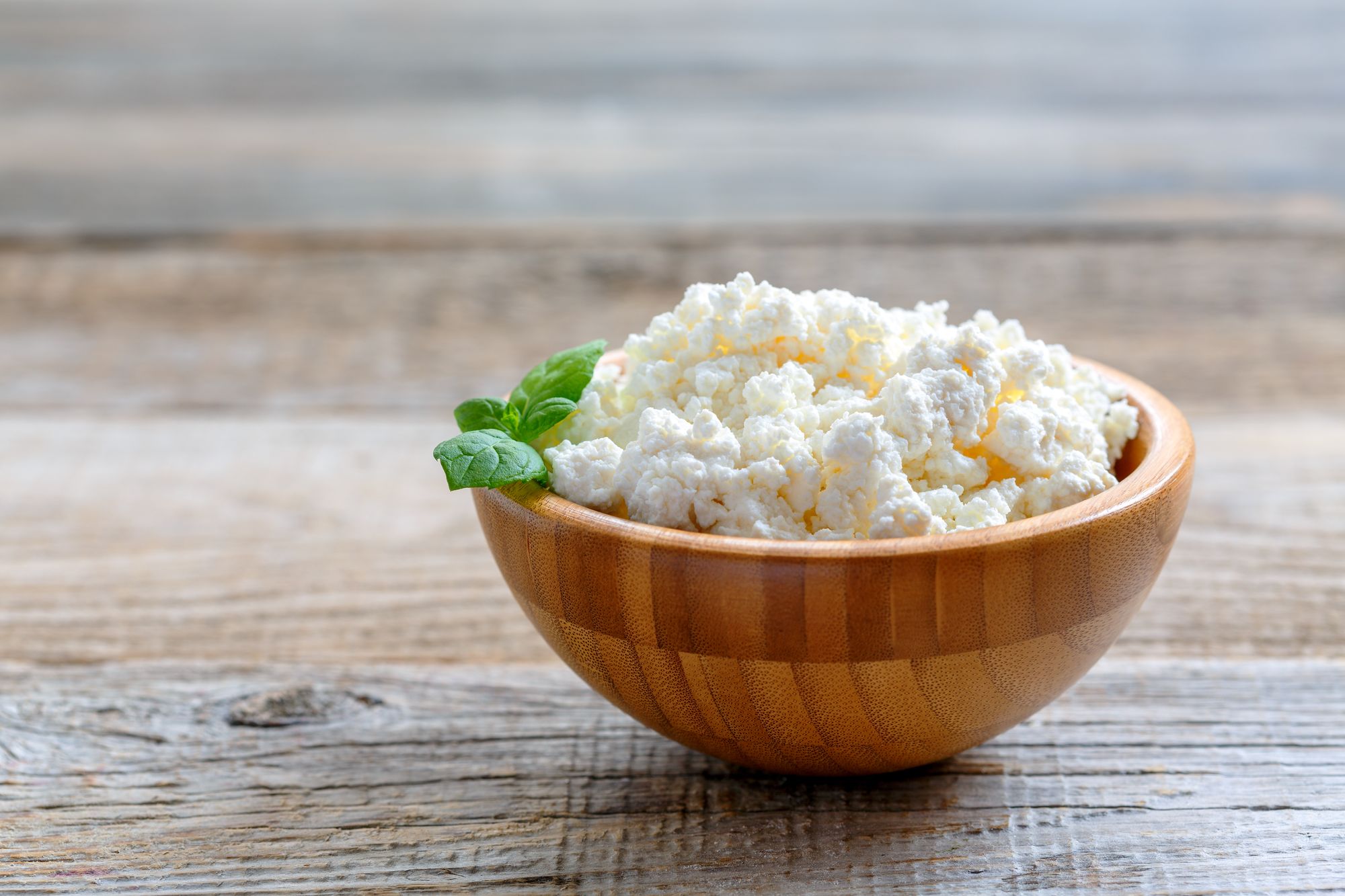
Portion: 100 grams Calories: 82 Protein: 11 grams
Low-fat cottage cheese is an often-overlooked source of protein, serving as a tasty snack on its own or as a flexible ingredient in a range of recipes. As Kelsey Kunik notes, "Cottage cheese is increasingly popular for good reason. It's not only low in calories and high in protein, but it also serves as the perfect addition to dips, smoothies, or as a side dish for savory meals."
17) Lentils
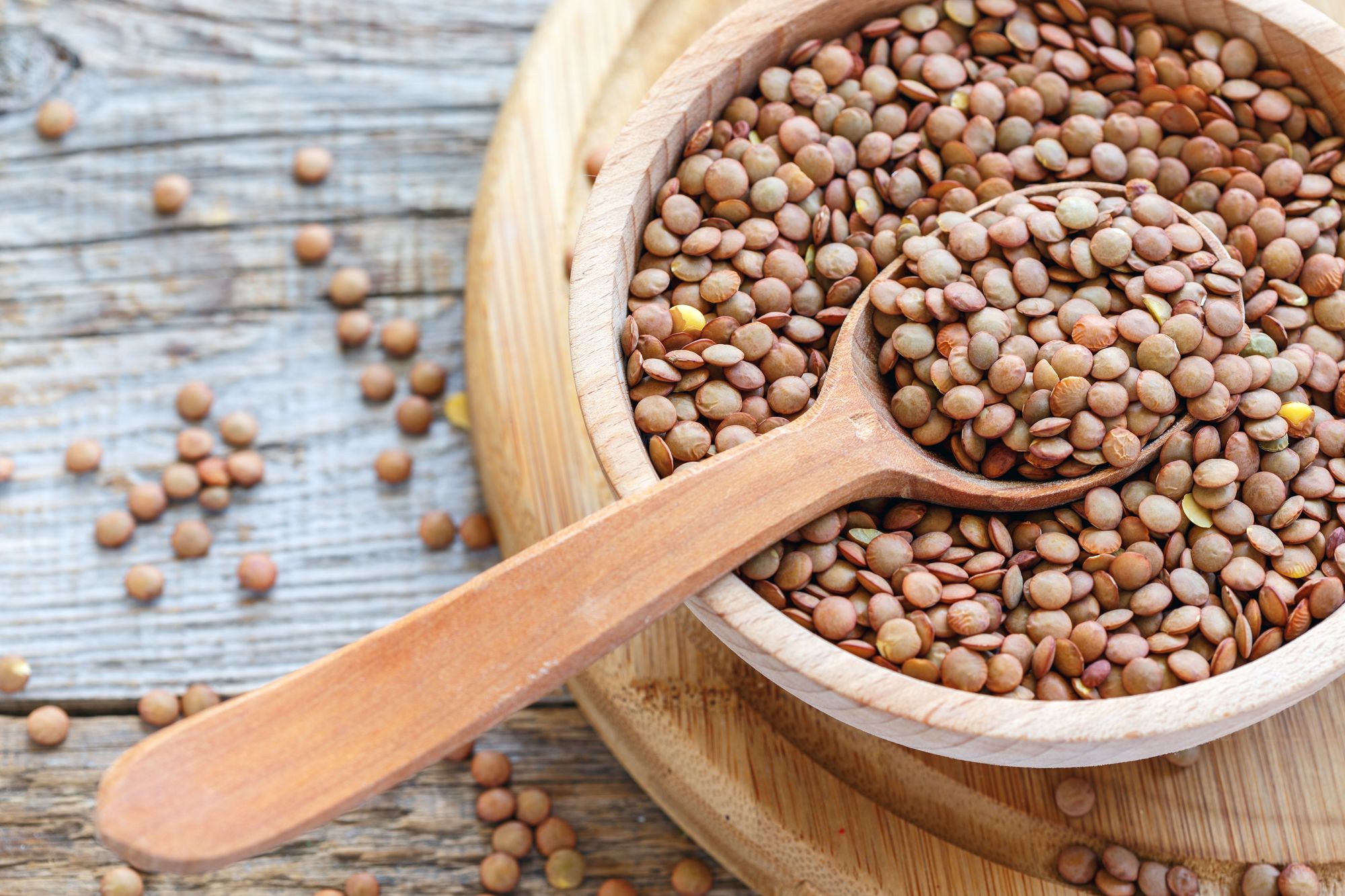
Portion: 1 serving (35 grams) Calories: 80 Protein: 10 grams
Lentils are not only a valuable plant-based protein source but also a rich source of dietary fiber, beneficial for digestive health. As Schlichter points out, "Lentils are excellent for both protein and fiber, aiding in satiety and weight management. Just a cup of lentils provides close to 20 grams of protein, 15 grams of fiber, and a variety of micronutrients."
18) Shrimp
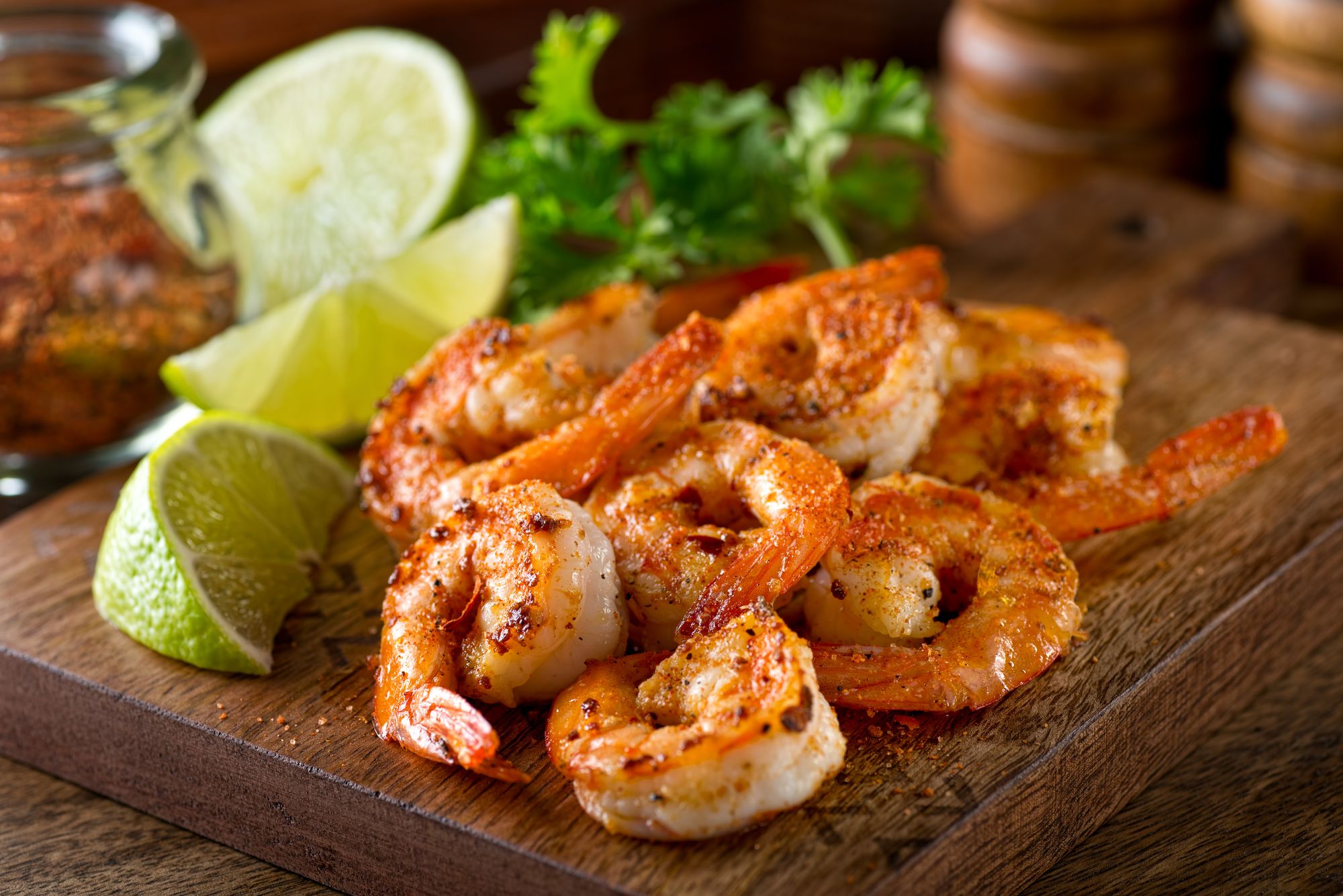
Portion: 100 grams Calories: 91 Protein: 17 grams
Shrimp provides a lean protein source and is also rich in astaxanthin, a powerful antioxidant known for its anti-inflammatory properties. Moreover, shrimp is a good source of selenium, which, according to the National Institutes of Health, plays a role in protecting the body from oxidative stress and supports immune system health.
19) Quinoa
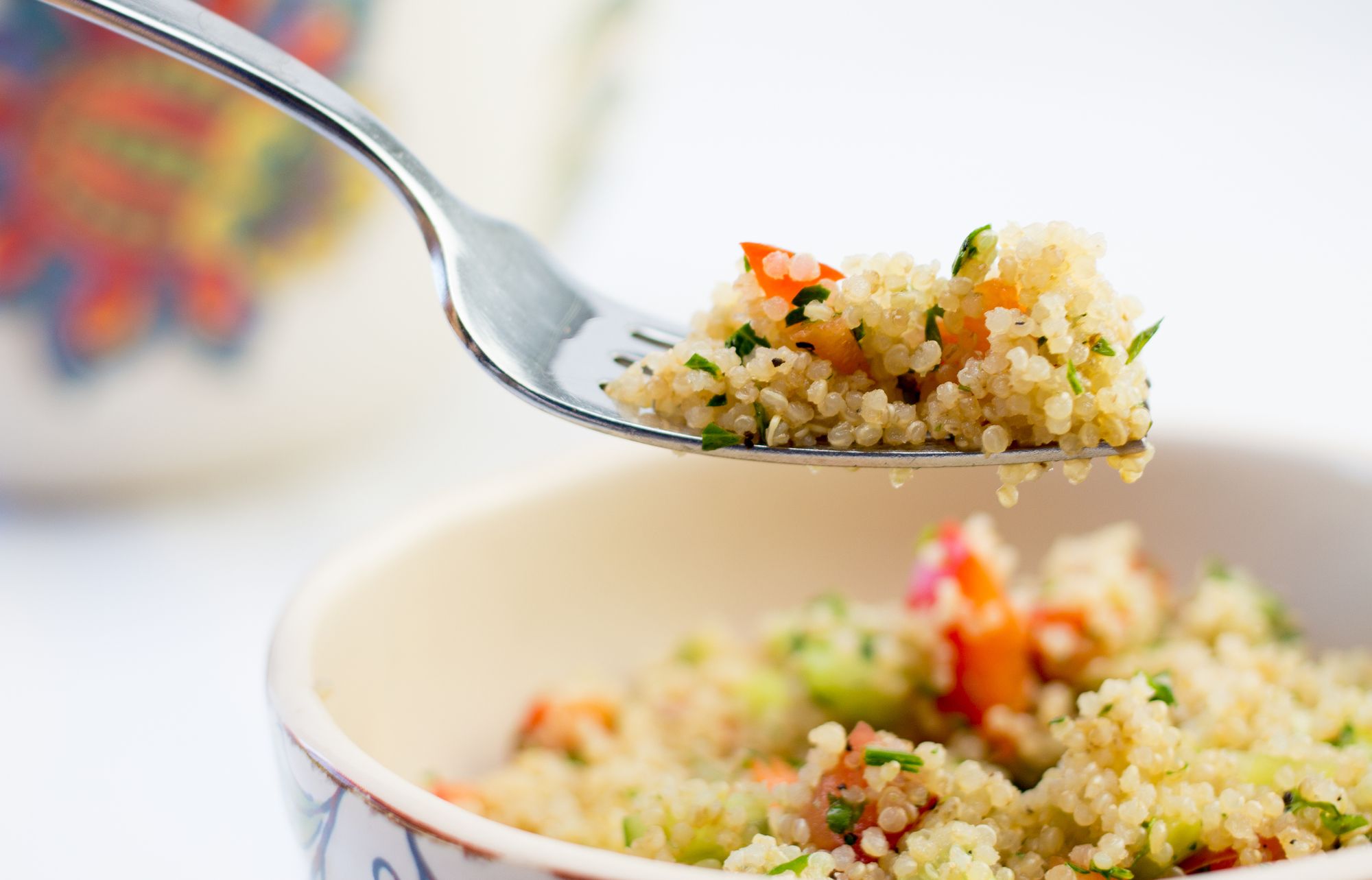
Portion: 1 serving (44 grams) Calories: 160 Protein: 5 grams
Quinoa is a complete source of plant protein, encompassing all nine essential amino acids. Additionally, it is gluten-free, rich in magnesium, and an excellent iron source.
20) Turkey Breast
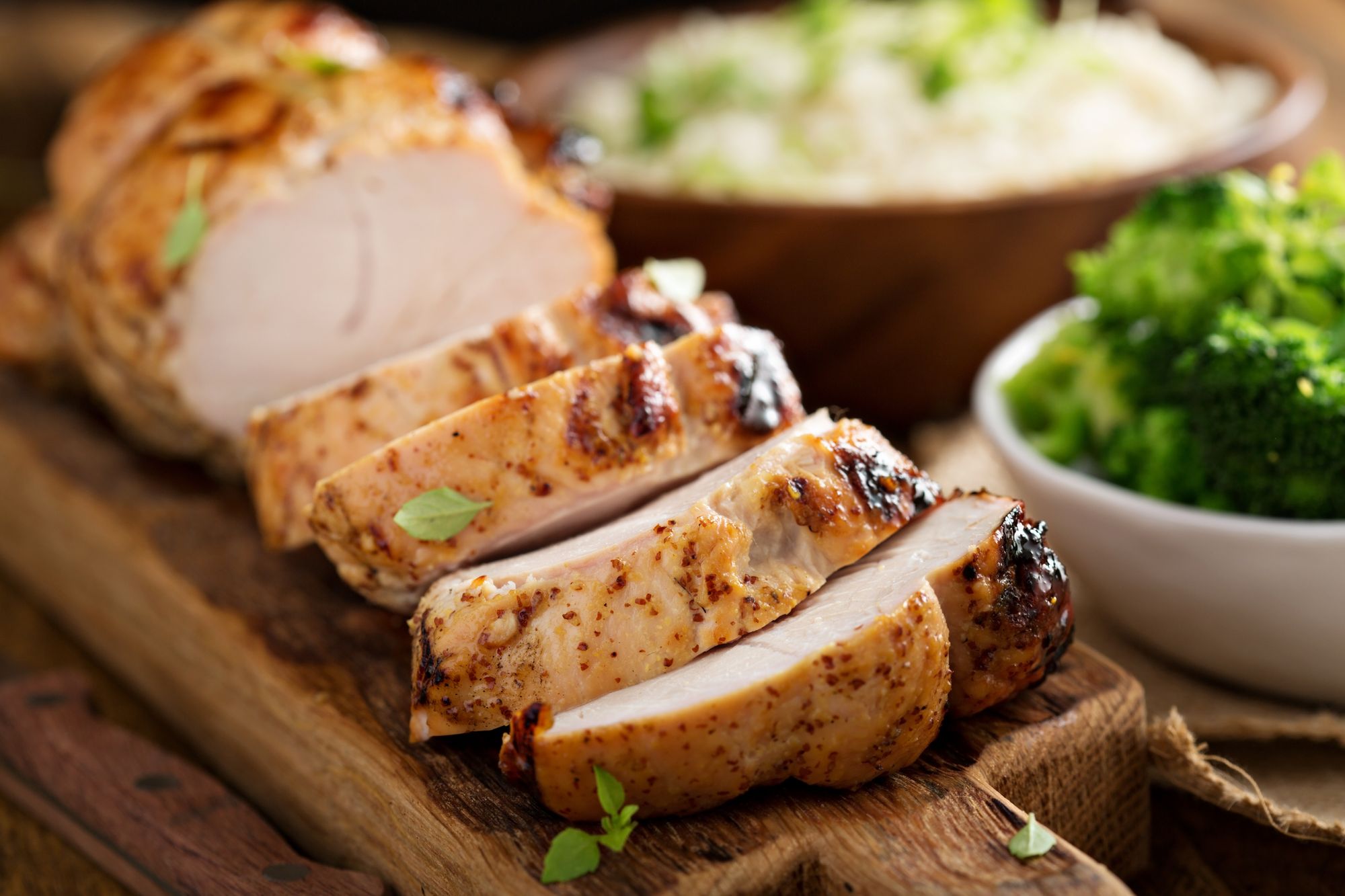
Portion: 3 ounces (85 grams) Calories: 125 Protein: 26 grams
Turkey breast, a source of lean protein, also provides B vitamins such as niacin, essential for energy metabolism. Additionally, turkey is a good source of selenium, an antioxidant that plays a role in protecting cells from damage.

